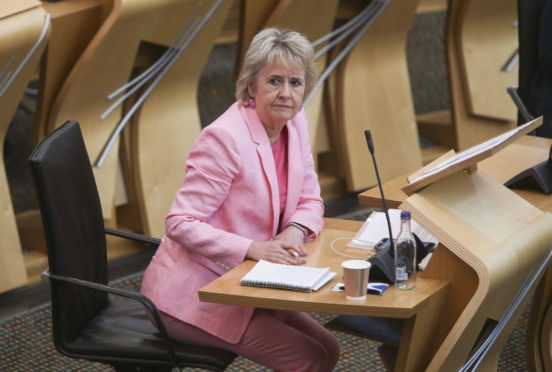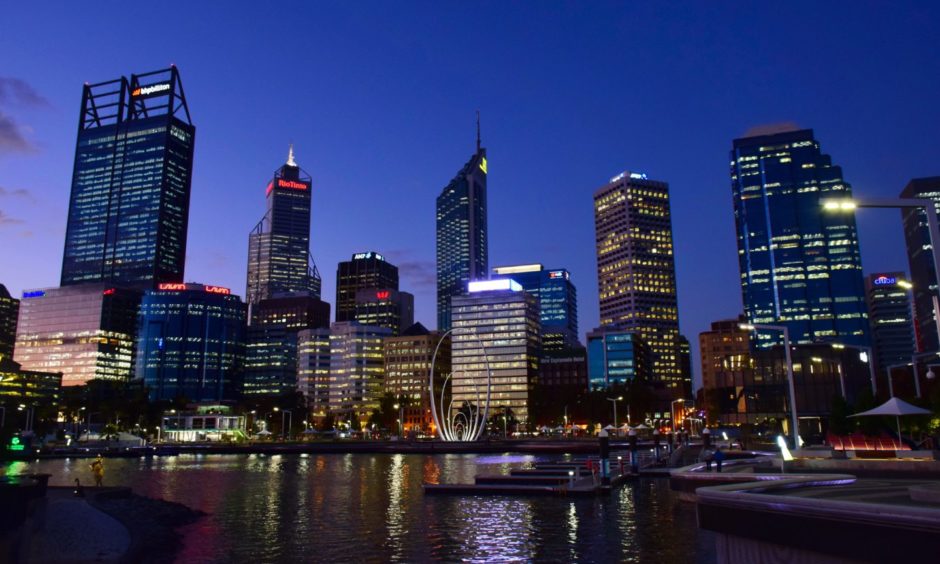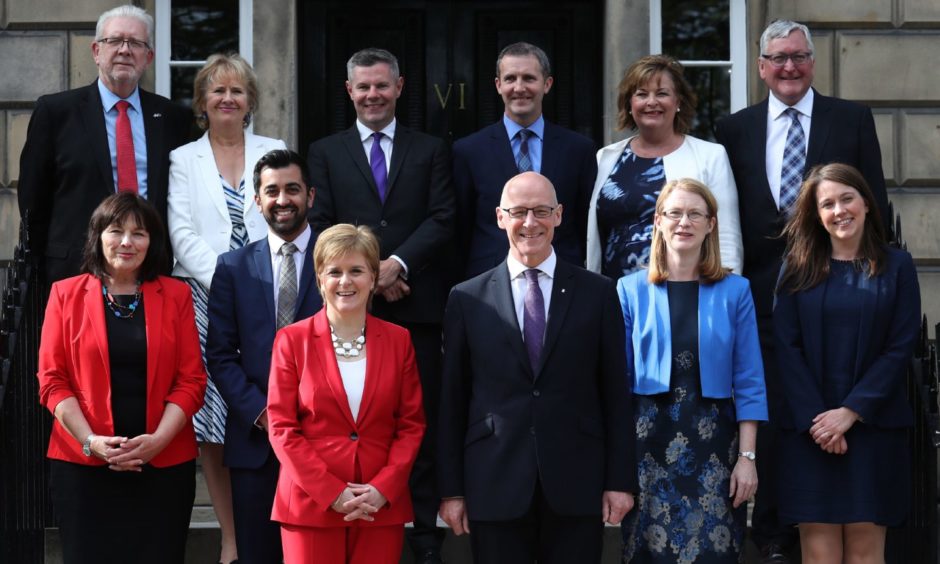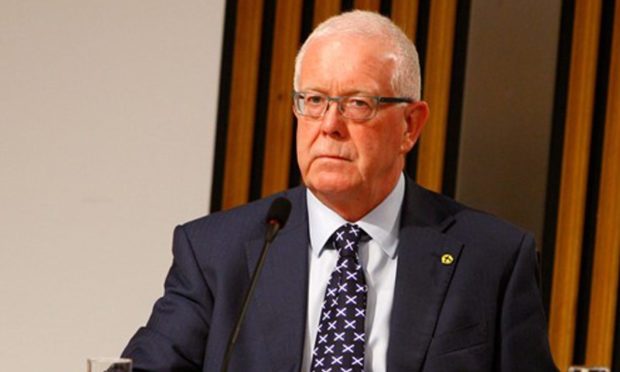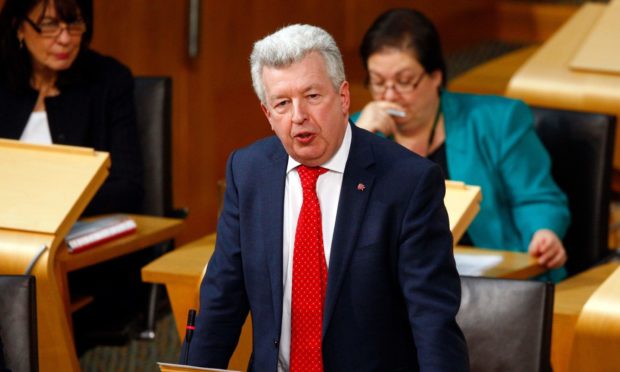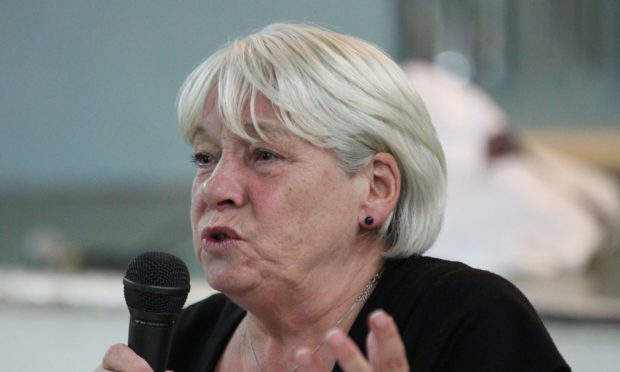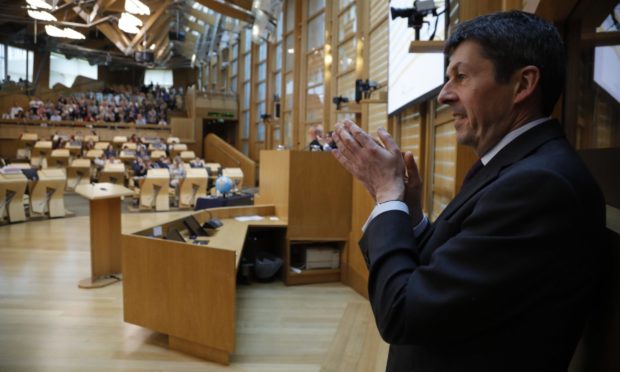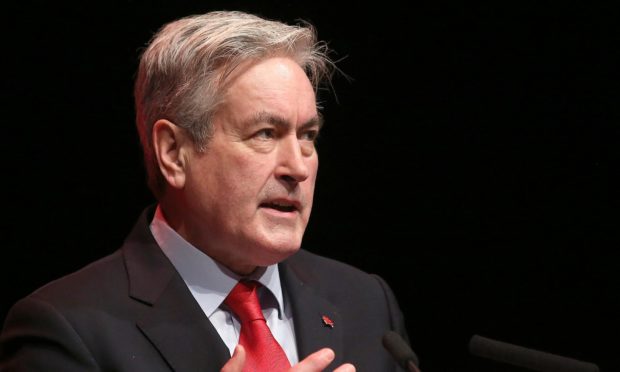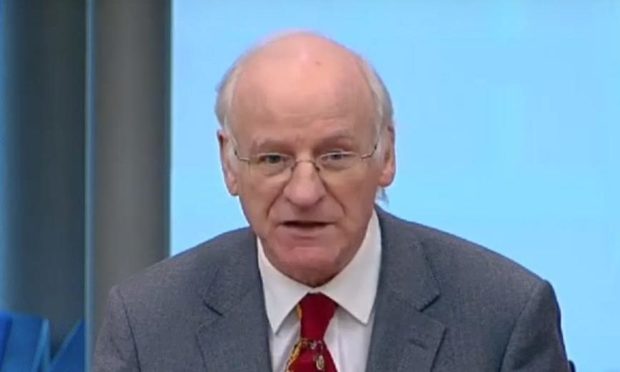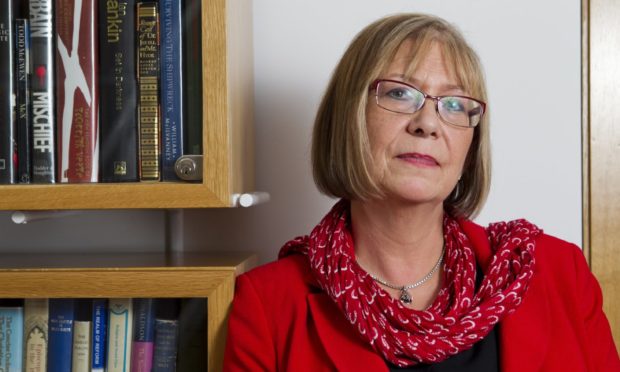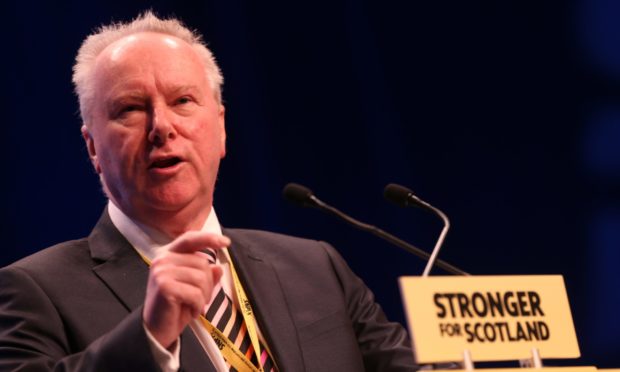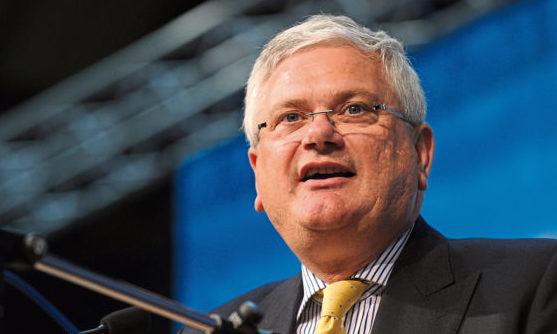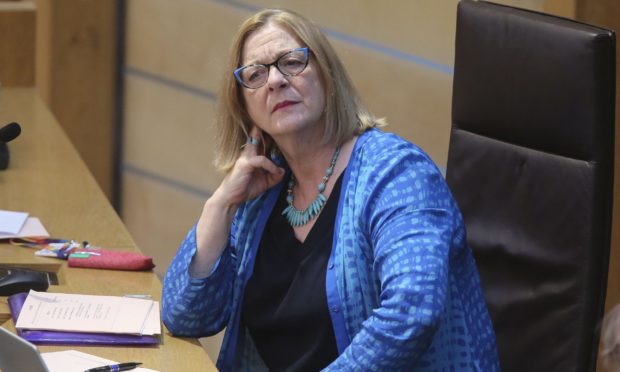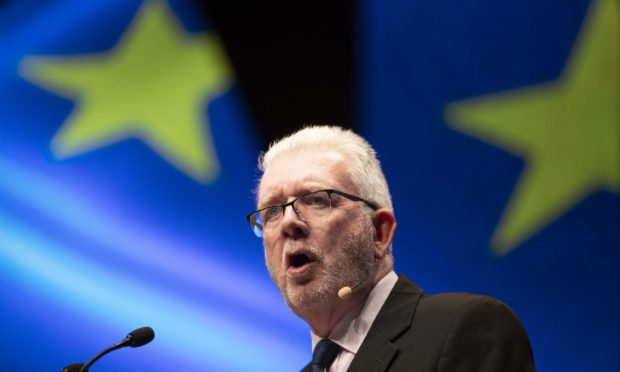The “inexorable rise of the SNP” has “completely shifted” the political landscape over the last two decades, according to Scotland’s longest-serving parliamentarian.
Roseanna Cunningham is one of the party’s most high-profile MSPs to announce her departure from the Scottish Parliament, after a political career that began in 1995 when she won the Perth and Kinross by-election and was elected MP.
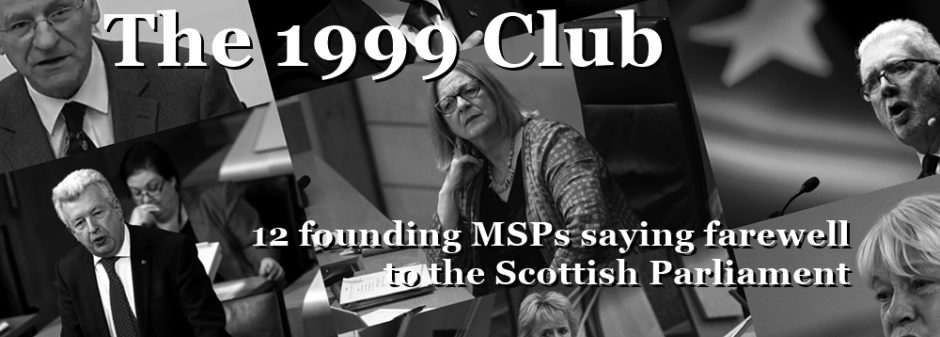
The veteran politician would later set her sights on a career inside the Scottish Parliament, when she became the MSP for Perth.
Over the last 21 years, the MSP, who has represented Perthshire South and Kinross-shire since constituency changes that year, claims to have witnessed an “enormous sea change” towards the SNP, with the Scottish Parliament a “massive contributor to that happening”.
The 69-year-old revealed that at the beginning of the year she had hoped to seek re-election for the seat she has represented for more than two decades but the Covid-19 pandemic made her rethink her plans.
The Cabinet Secretary for Environment, Climate Change and Land Reform also laid out her “significant” concerns around the Brexit process, which she argued has been used by the UK Government to “push an agenda which is going to result in the hands of the devolved administrations being more and more tightly bound behind their back”.
Ms Cunningham said she had first been active in the SNP when the party was at around “10% in the opinion polls” but that their electoral success over the last decade in particular has transformed Scotland, compared to the situation in 1999.
“We used to go round and think ‘when are folk actually going to wise up to what is actually happening’ and then they did,” she added.
“The sense of a Scottish identity crystallising into a civic understanding of being a Scot and I’m really proud that being a Scot doesn’t have to mean your grandfather, your great-grandfather and your great-great grandfather all came from here.
“Being a Scot now is a much wider category and I really think that’s for the greater good of Scotland. It allows Scotland culturally to continue to grow and develop.
“We don’t want an ossified Scotland, we don’t want Scotland fixed in a notion of the past, we want Scotland to continue to grow, develop and change like any good, healthy nation will do.”
‘Scotland woke up’
Ms Cunningham said the “inexorable rise” of the SNP has “completely shifted the entire landscape”.
She added: “From my, perspective for the better. I’m sure there are other opinions available from other politicians.
“There was just that huge sense, I would put it, that Scotland woke up.”
A strong Scottish identity is something that Ms Cunningham has a keen affinity with, dating back to when she moved to Perth, Australia aged just eight.
Born in Glasgow but later emigrating with her family to the other side of the world, she joined the SNP as an overseas member in 1969.
Her interest in politics was first sparked by an uncle who was a Labour MP in Western Australia.
She said: “I remember asking him about it at 10 and being vaguely interested in what exactly he did but I also very strongly identified with being Scottish from the start.”
Aged 15, the future SNP politician first wrote to the party around the time of the Hamilton by-election, which Winnie Ewing won, and she received a letter back.
She said: “There was a political party that spoke to my very strong identification as a Scot, albeit 12,000 miles away, and that, really, was how it all began.”
Biography
Name: Roseanna Cunningham
Age: 69
Party: SNP
Member: Perthshire South and Kinross-shire
Born: Glasgow
Education: Graduated with a degree in politics from Western Australia University in 1975; graduated with a Bachelor of Laws degree in 1982 at the Edinburgh University; followed in 1983 by a Diploma in Legal Practice from the Aberdeen University
Career: SNP researcher (1977-1979); solicitor at Dumbarton District Council (1983-1986); solicitor at Glasgow District Council (1983-1986); solicitor at a private practice (1989-1990) and was admitted to the Faculty of Advocates (1990-present)
Political career: MP for Perth and Kinross (1995-1997); MP for Perth (1997-2001); MSP for Perth (1999-2011); deputy leader of the SNP (2000-2004); MSP for Perthshire South and Kinross-shire (2011-present); Minister for Community Safety and Legal Affairs (2011-2014); Cabinet Secretary for Fair Work, Skills and Training (2014-2016); Cabinet Secretary for Environment, Climate Change and Land Reform (2016-present)
After moving back to Scotland in 1976, she studied at university in Edinburgh and Aberdeen, worked as a researcher for the SNP and latterly as a solicitor, before choosing to stand in the 1992 general election for the Perth and Kinross constituency but lost by around 2,000 votes.
The stand-out moment in her political career was her first election win, in 1995, which saw her elected as MP for Perth, which she described as “massive”.
Being subsequently elected as MSP for Perth in 1999 on the advent of devolution was “huge and incredibly exciting”.
Spending her first 10 years as a backbencher, she would spend the second half of her MSP career as a government minister.
Serving as the first justice convener in the parliament’s first year was “amazing” and the politician recalls “just a sense of ‘I was made for this’.
She added: “I guess lots of people don’t necessarily get that in their lives. I remember walking up to the old parliament and that overwhelming sense of being in the right place and doing what I should be doing.”
Since 2016, Ms Cunningham has served as Cabinet Secretary for Environment, Climate Change and Land Reform.
Emissions in Scotland have dropped by 50% over the last three decades but the most recent statistics, released in June, revealed the Scottish Government missed its greenhouse gas reduction targets for 2018 by 4%.
The SNP politician said “every country can do better” on climate change but that Scotland has an “extremely good track record”.
She added: “We give ourselves incredibly high standards to reach. Can we do more? Every country not just can do more but will have to do more and that will include Scotland as well”.
The senior SNP figure has “serious concerns” around what the Brexit process will mean for her portfolio, particularly around environmental and food standards, but also for devolution itself.
She said: “There’s a real threat to the opportunity that has been seized by the UK Government to push an agenda which I think is going to result in the hands of the devolved administrations being more and more tightly bound behind their back so that we have powers in theory but in practice they will be unimplementable.
“I think this UK Government has decided it’s had enough of devolution and is now setting about dismantling it.
“I suspect they hope by stealth but it’s not going to be by stealth. There is going to be a big struggle on… not just us but Wales and Northern Ireland as well.
“The same issues, the same concerns, the same threats are being perceived by the other devolved nations as well.”
Who knows what things will be like after the end of March in 2021 where I will cease to be a public person and will then become just me again; unfiltered and not having to bite my tongue all the time.”
Health and wellbeing
The 69-year-old claims her decision to stand down was partly down to her age but also due to the recent Covid-19 pandemic which caused her to reassess her situation.
She said: “Right at the beginning of the year, I was thinking about it but I was pretty much coming down on the side of standing again. But I will be 70 next year and that would mean the year of the following election would be the year I was turning 75.
“You are conscious that, once you get into that age group, you’re taking a slightly bigger gamble with your health and wellbeing.
“I’m fit and well, I’m probably more healthy than I’ve been for a long time. I didn’t have concerns for the next couple of years so if I was 67 or 68, I probably would have said ‘oh sod it, I’ll do another five years.
“It was that 70 to 75 that made me think. At the beginning of the year I was going to go for it and then Covid-19 happened and I thought, you just don’t know what’s round the corner, and that sort of had an impact on the way I was looking at things and the sense in which I could see a way not to do it.
“I still struggle a little with it, I’m not going to pretend otherwise. I still don’t feel absolutely 100% gung ho about it 100% of the time but I am getting more comfortable with it having made the decision.”
The pandemic has made planning for a future post-politics difficult but she hopes to travel, do lots more walking and learn to speak Italian properly.
She said: “There are some plans but I’ve learnt from other people’s advice, which is not to tie yourself up with a lot of things straight away until you’ve had a little bit of time to think about it.
“When you decide you’re going to retire, and retiring into this scenario, it does just present you with a kind of uncertainty you wouldn’t have had before.
“Who knows what things will be like after the end of March in 2021 where I will cease to be a public person and will then become just me again; unfiltered and not having to bite my tongue all the time.”
The Scottish Parliament still has “some way to go” to fulfil its full potential but so has Westminster, Ms Cunningham points out.
She adds: “It has allowed Scotland to make decisions that were the right decisions at the time they were made and not be tied to the decision-making process of the parliament 450-500 miles south of us, which was never really operating on the basis of what Scotland’s needs and wishes were.”
